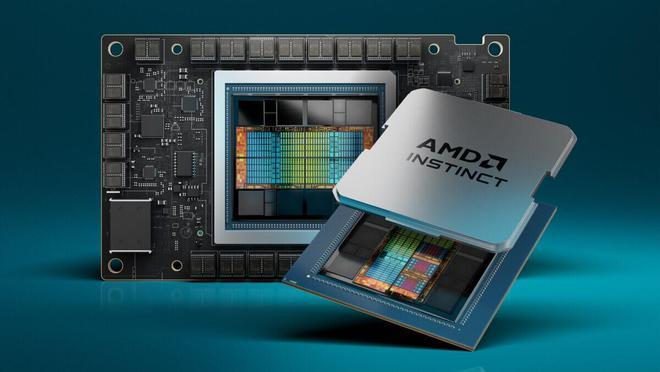AMD Acquires Silo AI, Catch Up With NVIDIA In AI Race
In the tide of artificial intelligence, AMD has taken a significant step in chasing the industry leader NVIDIA by acquiring the Finnish AI startup Silo AI. This strategic move not only strengthens AMD's technical capabilities in the AI field but also demonstrates its determination to fully deploy AI across software and hardware levels.
Core Technology of Silo AI
As one of the largest private AI labs in Europe, Silo AI boasts over 300 AI scientists and engineers focused on end-to-end AI-driven solutions, assisting clients in rapidly integrating AI technology into their products, services, and operations. Its core technology includes the SiloGen model platform, capable of building customized large language models (LLMs), and has successfully created advanced open-source large language models such as Poro and Viking on AMD platforms. These tools support the automated production deployment of AI models and are widely used in areas such as smart cars, surveillance, quality control, voice recognition, translation, and document library expansion.
Silo AI brings strong AI technical support to AMD, enhancing solutions in smart cars, surveillance, and other fields, complementing AMD's existing hardware technology and jointly promoting the development of AI technology.
Moreover, in terms of the power of open-source AI models, unlike the proprietary or closed models of companies like OpenAI and Google, Silo AI is committed to the development of open-source AI models. This openness not only promotes technology sharing and innovation but also attracts more customers seeking customized AI solutions, bringing new growth opportunities to AMD.
AMD's Strategic Acquisition
AMD's acquisition of Silo AI for $665 million in cash not only secures the core technology and professional team of Silo AI but also strengthens AMD's capabilities in AI software development. This will accelerate the development and deployment of AI models driven by AMD, helping potential customers build complex AI models using AMD's chips.
Through the acquisition, AMD can achieve technology and team integration. On one hand, AMD can accelerate the development and deployment of AI models based on its own chips, providing customers with richer and more efficient AI solutions. On the other hand, Silo AI's CEO and co-founder Peter Sarlin will continue to lead the team, ensuring a smooth integration of technology and culture.
Importantly, Silo AI's extensive business and customer base in Europe and North America provides AMD with further opportunities to expand the global AI market, helping to attract more potential customers. At the same time, the addition of Silo AI will speed up AMD's development in AI technology. AMD will be able to build a more open and collaborative AI innovation ecosystem, promoting the rapid development and application of AI technology. Furthermore, by effectively integrating Silo AI's customer resources with its own, AMD can provide customers with more comprehensive and efficient AI solutions and services, which helps to enhance customer satisfaction and loyalty. It can be said that by acquiring Silo AI, AMD will be able to accelerate the pace of catching up with NVIDIA, narrowing the gap with it in AI technology, while investing more R&D resources and market strength in the AI field.
In summary, AMD's strategic acquisition of Silo AI can incorporate Silo AI's core technology and professional team, which not only strengthens AMD's capabilities in AI software development but also provides acceleration for AMD in AI model development and deployment. Silo AI's CEO Peter Sarlin will continue to lead the team, ensuring a smooth integration of technology and culture, while Silo AI's customer resources and AMD's global network will jointly expand into a broader market.
Conclusion
AMD's acquisition of Silo AI is a key step in its AI strategy, marking a comprehensive acceleration in the AI field and laying a solid foundation for its long-term development in the global AI market. Through this strategic acquisition, AMD not only competes with NVIDIA in hardware but also seeks breakthroughs at the software level, aiming for a more comprehensive layout in the AI field. As AI technology continues to evolve, AMD is expected to attract more customers and achieve sustained growth and leadership in the AI market with the help of Silo AI's open-source AI models.
Electronic Chip Recommended Models
● The XCF02SVOG20C is a programmable logic device (FPGA) manufactured by AMD/XILINX in the TSOP-20 package. The FPGA integrated circuit can be widely used in fields requiring programmable logic, such as digital logic circuit design, signal processing, communication system, automation control, etc.
● XC6SLX45T-3CSG324I is a field programmable gate array (FPGA) device manufactured by Xilinx, a leading company in the field of programmable logic devices. This specific model is part of the Spartan-6 series, which is known for its high integration, low power consumption, and advanced features that make it suitable for a wide range of applications. Due to the versatility and performance of this semiconductor chip, the XC6SLX45T-3CSG324I is ideal for a variety of applications such as Industrial control systems, communications infrastructure, consumer electronics and medical devices.
● ICE1PCS01G is a stand-alone power factor correction (PFC) controller manufactured by Infineon Technologies for continuous conduction mode (CCM). The device offers a variety of protection features and has a programmable operating frequency ranging from 50kHz to 250kHz. The Power Management (PMIC) is mainly used in power management, industrial control, automotive electronics and communication systems to achieve efficient, stable and environmentally friendly power solutions in engineering applications.
Website: www.conevoelec.com
Email: info@conevoelec.com








